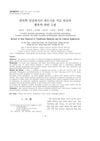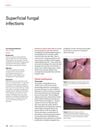 1 citations,
January 2023 in “Przegląd Dermatologiczny”
1 citations,
January 2023 in “Przegląd Dermatologiczny” The Polish Society of Dermatology recommends treatments for alopecia areata that vary by severity, including topical and systemic medications, with long-term maintenance important for management.
 May 2024 in “Journal of the Egyptian Women's Dermatologic Society /Journal of the Egyptian Women's Dermatologic Society”
May 2024 in “Journal of the Egyptian Women's Dermatologic Society /Journal of the Egyptian Women's Dermatologic Society” Combining fractional CO2 laser and PRP is very effective for treating female hair loss.
3 citations,
August 2018 in “Medical Journal Armed Forces India/MJAFI” Intense Pulse Light effectively reduces hair growth in faun tail nevus.
 September 2024 in “Electronic Journal of General Medicine”
September 2024 in “Electronic Journal of General Medicine” Laser hair removal can cause severe skin irritation, but it can improve with treatment.
5 citations,
August 2022 in “Mediators of Inflammation” Combining Pulsed Dye Laser with Pingyangmycin is effective and safe for treating acne scars.
4 citations,
February 2023 in “Frontiers in Oncology” Nano-Pulse Stimulation™ Therapy is more effective and less damaging than cryoablation for treating melanoma tumors in mice.
 August 2023 in “Journal of Cosmetic Dermatology”
August 2023 in “Journal of Cosmetic Dermatology” Using a laser with minoxidil was more effective for hair loss than minoxidil alone.
 April 2016 in “Medical Acupuncture”
April 2016 in “Medical Acupuncture” The document concludes that hair loss in women is treated with medications, therapies, and surgery in Western medicine, and with acupuncture and herbs in Chinese medicine, but hereditary hair loss is hard to reverse.
 20 citations,
January 2017 in “Actas Dermo-Sifiliográficas”
20 citations,
January 2017 in “Actas Dermo-Sifiliográficas” Recent advances in hair loss treatments show significant progress.
 7 citations,
March 2017 in “Actas Dermo-Sifiliográficas”
7 citations,
March 2017 in “Actas Dermo-Sifiliográficas” Several new treatments for different types of hair loss show promise in improving patient quality of life.
3 citations,
August 2021 in “Journal of Cosmetic Dermatology” Non-ablative Er:YAG laser effectively treats hair loss with high patient satisfaction and no side effects.
 2 citations,
August 2016 in “Lasers in Surgery and Medicine”
2 citations,
August 2016 in “Lasers in Surgery and Medicine” Photodynamic therapy can remove nonpigmented hair in mice and might work for humans.
 1 citations,
July 2018 in “Elsevier eBooks”
1 citations,
July 2018 in “Elsevier eBooks” Many treatments for hair loss show potential, but more testing is needed to confirm their effectiveness. Only minoxidil for women and minoxidil and finasteride for men are FDA approved.
 February 2024 in “Lasers in Medical Science”
February 2024 in “Lasers in Medical Science” Lasers and energy-assisted methods show promise for treating hair loss, but more research is needed.
 June 2023 in “Dermatology and Therapy”
June 2023 in “Dermatology and Therapy” Using fractional CO2 laser with halometasone cream works better for chronic hand eczema than just the cream, improving symptoms and quality of life with fewer relapses.
115 citations,
January 2002 in “American Journal of Clinical Dermatology”  73 citations,
March 2009 in “Seminars in Cutaneous Medicine and Surgery”
73 citations,
March 2009 in “Seminars in Cutaneous Medicine and Surgery” The document concludes that accurate diagnosis of hair disorders is crucial and requires a range of diagnostic methods.
 35 citations,
May 2012 in “Expert Opinion on Pharmacotherapy”
35 citations,
May 2012 in “Expert Opinion on Pharmacotherapy” The document concludes that there are various treatments for different types of alopecia, but more research is needed for evidence-based treatments.
 28 citations,
September 2020 in “Pharmaceutics”
28 citations,
September 2020 in “Pharmaceutics” 3D-printed mesoporous scaffolds show promise for personalized drug delivery with controlled release.
 22 citations,
September 2018 in “Medical Clinics of North America”
22 citations,
September 2018 in “Medical Clinics of North America” Facial aging is caused by natural processes and external factors, and can be managed with preventative measures and a variety of treatments tailored to individual needs.
 2 citations,
February 2022 in “Biology”
2 citations,
February 2022 in “Biology” Blue laser light reduces energy in mouse skin cells and creates harmful oxygen compounds, possibly harming the cells.
 2 citations,
January 2018 in “International journal of research in dermatology”
2 citations,
January 2018 in “International journal of research in dermatology” Intralesional corticosteroids are the best for limited alopecia areata, oral steroids are less effective, and PRP is safe and promising, especially for children and severe cases.
 1 citations,
May 2017 in “InTech eBooks”
1 citations,
May 2017 in “InTech eBooks” The document concludes that alopecia areata is an unpredictable autoimmune hair loss condition with no cure, but various treatments exist that require personalized approaches.
 1 citations,
January 2015 in “Springer eBooks”
1 citations,
January 2015 in “Springer eBooks” The document says a skin condition called alopecia areata causes hair loss and stress, and is treated with strong skin creams, injections, or other therapies, but treatment success varies.
 November 2023 in “Journal of cosmetic dermatology”
November 2023 in “Journal of cosmetic dermatology” The 595-nm pulsed dye laser effectively reduces symptoms of EFFC with minimal side effects.
 February 2023 in “Archives of Dermatological Research”
February 2023 in “Archives of Dermatological Research” Laser treatment, especially when combined with other therapies, is effective for hair regrowth in alopecia areata.

Combining traditional hair removal methods with modern technology could improve cosmetology.
 54 citations,
October 2019 in “Australian Journal of General Practice”
54 citations,
October 2019 in “Australian Journal of General Practice” Accurate diagnosis and treatment are crucial for managing superficial fungal infections, with terbinafine being the best oral treatment for nail infections.
 21 citations,
May 2016 in “The Cochrane library”
21 citations,
May 2016 in “The Cochrane library” Topical minoxidil helps treat female pattern hair loss, but more research needed for other treatments.
 14 citations,
February 1999 in “The BMJ”
14 citations,
February 1999 in “The BMJ” Cosmetic surgery is more popular and cost-effective, but outcomes depend on the surgeon's skill and all procedures have potential complications.
























